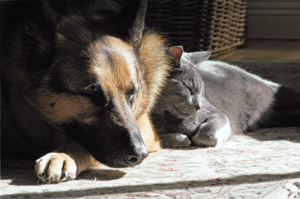 Pit Bulls, are Our Best Friends, but again I ask, “Are We Theirs? Pit bulls are among the sweetest dogs I personally have known. Over the many years as a dog lover, I’ve noticed dogs more than people, and I usually say hello to more dogs than I say hello to people. And, no I’m not unsociable to my own kind, just a dog lover. Here in Manhattan there is a large population of pitties especially in my neighborhood, and I don’t mean the areas known for drugs and crime. I happen to live in the fashionable Midtown East area, also known as the Upper East Side. And several of my favorite neighbors just happen to be Pit Bulls and Pit Bull mixed breeds. There are just on my city block at least half a dozen, with one living in my building! I’m grateful that the breed discrimination against these dogs is minimal here compared to other areas of the country.
Pit Bulls, are Our Best Friends, but again I ask, “Are We Theirs? Pit bulls are among the sweetest dogs I personally have known. Over the many years as a dog lover, I’ve noticed dogs more than people, and I usually say hello to more dogs than I say hello to people. And, no I’m not unsociable to my own kind, just a dog lover. Here in Manhattan there is a large population of pitties especially in my neighborhood, and I don’t mean the areas known for drugs and crime. I happen to live in the fashionable Midtown East area, also known as the Upper East Side. And several of my favorite neighbors just happen to be Pit Bulls and Pit Bull mixed breeds. There are just on my city block at least half a dozen, with one living in my building! I’m grateful that the breed discrimination against these dogs is minimal here compared to other areas of the country.
Dogs that are referred to as Pit Bulls are the American Bull Terrier and the American Staffordshire Terrier, but most are mixed breeds and are usually categorized according to their appearance. And I’d like to add that the well- known rumor about their jaws locking is FALSE (Scroll down to a link for the full ASPCA article on this).
According to the ASPCA
“Most experts describe them as short coated with a wide skull, powerful jaws, and a muscular sometimes stocky body.”
They go on to state
“There is much variation in their appearance, typically weigh 35-65 pounds, strong and athletic, with impressive stamina and a staunch work ethic”. (1)
Well, I can see by this description why they are the most used in one of the most abusive ways by some of the most abusive inhuman humans. However, my question is, are we always just a product of our physical prowess using it to be violent? Why are dogs different? Solid evolutionary theory, and Charles Darwin’s ideas about what he coined evolutionary continuity in which he recognized that the differences among species in anatomical, physiological, and psychological traits are differences in degree rather than kind.
Thinking back on this, I still smile at the memory of my 6- pound Charlie snapping at one of my neighbor’s huge Pit Bull’s. One of the largest Pittie mix I’ve ever seen, he was just a gentle giant who one day sniffed my little girl maybe just where she didn’t want to be sniffed. Well, she snapped and he jumped back and hid behind the legs of my neighbor. Think this is rare or unusual for a powerful breed? Here are some statistics I found
“According to the American Temperament Test Society, temperament evaluations of American Pit Bull Terriers show that this breed has a very high passing rate of 82.6%. The average passing rate for the other 121 breeds of dogs in the tests: 77%”. (2)
Speaking of temperament, one of my favorite neighbors is Jekell, a Pittie mix who lives a few floors above me. Always a gentle greeter to Sophie and me with a wagging tail, he immediately sits for Sophie so she feels at ease to greet him. Many times he’ll sit with his back to her and while I can’t swear that he does this on purpose, it puts Sophie most at ease as we approach. What I love also about Jekell is the way he looks me in the eyes, and I see and feel a mutual affection.
Jekell didn’t learn to do this because Laura bought him and trained him as a puppy, but rather he was found roaming the streets of NYC. A wonderful couple found him half starved and brought him home, and then to a Vet. Laura who is part of a Pit Bull Rescue Group then adopted him. I met Jekell when Laura brought him home, still all bones even though he had been eating more food for a few weeks. Gentle and sweet, what Laura pointed out and what I noticed was that Jekell was always “on guard” when outside, constantly on the look out. I would guess this is what a dog must do to survive on the streets.
One year later, Jekell still the sweetie, is more trusting as Laura tells me, and while he stills keeps his eyes open, he is much more relaxed. Jekell was once attacked by a smaller dog while at the dog park, but didn’t fight back. Doesn’t seem in his nature, and while I not an animal behaviorist, my understanding is many times during play dogs can become overexcited. Sometimes within a second the play can turn into more. Just like us I’ve seen children do so adults and us humans are responsible for keeping a close eye. P.S. The other dog wasn’t a Pit Bull.
Pit Bulls, and all the dogs that are categorized as these terriers, are indeed strong dogs, but it is humans who have used this physical prowess for the violent purposes that have now brought us to discriminate against them. People from drug dealers, to gang members, to ringleaders of dog fighting to kids who use them as their alter egos, and even to wealthy professional athletes like Michael Vick using unspeakable methods forcing them to fight have given them the reputation that they now have.
Speaking of the above athlete whose name I don’t want to repeat again, here is a link to happy ending story from Best Friends Organization titled “Layla Goes Home.” Layla, one of the severely abused Pit Bull dogs from the fighting ring gets the love she deserves in a new forever home. Given the love and reconditioning, she is now giving only love back.
http://bestfriends.org/News-And-Features/News/Layla%E2%80%99s-love-at-first-sight/?utm_source=BSD&utm_medium=email&utm_content=CTA&utm_campaign=Best%2BFriends%2BNews
Should we have breed discrimination? I say yes, yes against the breed of humans who raise and/or use the wonderful attributes Pit Bulls have against them. Let’s not generalize an entire breed of dog due to what humans have done to them. Let’s make the distinction.
Well got to go, Sophie and I are on our way to meet Laura and Jekell for a walk!
Next: The Value of Animals.
Sources:
1. http://www.aspca.org/Pet-care/virtual-pet-behaviorist/dog-articles/the-truth-about-pit-bulls
2. http://defendpitbulls.com/pit-bull-attack-statistics/

